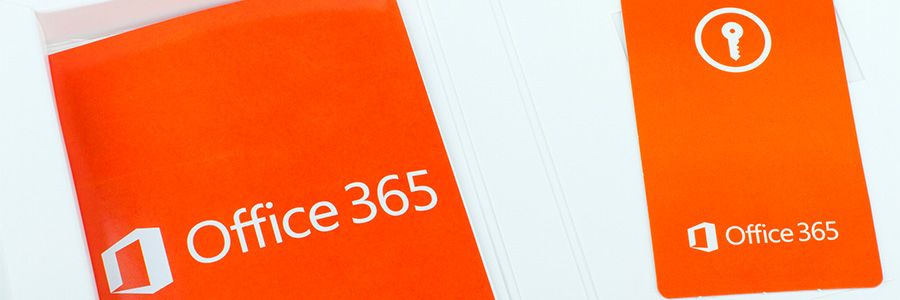As the business world increasingly relies on digital tools, Microsoft 365 has emerged as a cornerstone of productivity and collaboration. With the transition from Office 365 to Microsoft 365, understanding the various licensing options can be challenging. This guide will walk you through the key differences, types of licenses, and their respective use cases to help you make an informed decision.
The Transition from Office 365 to Microsoft 365
In April 2020, Microsoft rebranded its Office 365 plans to Microsoft 365. This change wasn't just about a new name; it reflected an expanded suite of tools and services designed to empower users in more ways than just the traditional Office applications. While Office 365 focused primarily on productivity apps like Word, Excel, and PowerPoint, Microsoft 365 includes these, along with additional services such as advanced security features and device management tools.
Types of Microsoft 365 Business Licenses
Microsoft 365 licenses are tailored to fit different business sizes and needs. Here's a breakdown of the main types:
- Microsoft 365 Business
- Microsoft 365 Business Basic: This plan includes web and mobile versions of Office apps, email, file storage, and sharing. It's ideal for businesses that need essential services like email and cloud storage without the desktop apps.
- Use Case: Startups and small businesses with minimal budget constraints that need essential collaboration tools.
- Microsoft 365 Business Standard: In addition to everything in Business Basic, this plan includes desktop versions of Office apps. It's suitable for businesses that require full Office applications and services.
- Use Case: Small to medium-sized businesses that need advanced productivity tools and offline access.
- Microsoft 365 Business Premium: This plan includes all the features of Business Standard, plus advanced security and device management. It's designed for businesses that need comprehensive security solutions.
- Use Case: SMBs with a focus on security and compliance, needing robust device management and protection.
- Microsoft 365 Apps for Business: Offers the latest versions of Office apps on all devices but does not include business services like email and Teams.
- Use Case: Businesses that need the latest Office apps without additional services.
- Microsoft 365 Enterprise
- Microsoft 365 E3: Includes Office apps, email, file storage, and sharing, with additional security and compliance tools. This plan is a step up from Business Premium, providing more advanced features.
- Use Case: Medium to large enterprises that require advanced security, compliance, and productivity tools.
- Microsoft 365 E5: The most comprehensive plan, including all the features of E3 plus advanced analytics, security, and voice capabilities. It's designed for large organizations with complex needs.
- Use Case: Large enterprises with extensive security, compliance, and telephony requirements.
- Microsoft 365 F3: Tailored for frontline workers, this plan includes essential Office apps and services to keep them connected and productive.
- Use Case: Industries like retail, manufacturing, and healthcare where frontline workers need basic tools and connectivity.
- Microsoft 365 F1: This plan is designed for first-line workers who need a streamlined experience and core functionalities like email, Teams, and other communication tools.
- Use Case: Organizations needing to equip their front-line employees with essential productivity and communication tools.
- Microsoft 365 Kiosk (K1/K2): These plans are for kiosk workers and include limited access to email and basic Office apps. The K2 plan includes additional features such as more storage and access to more services.
- Use Case: Employees who require basic access to email and Office apps, often in industries like retail or hospitality.
Pricing and Management
Microsoft sets the pricing for all its 365 licenses, and businesses can purchase these licenses directly. However, partnering with a Managed IT Service Provider (MSP) like Fidelis offers several advantages. When an MSP manages your licenses, they handle the complexities of license procurement and management, speeding up processes such as adding new users. This allows you to maintain control and insight into your licensing while benefiting from streamlined operations and support.
Use Cases and Examples
- Startup with Remote Teams: A startup with remote teams might opt for Microsoft 365 Business Basic to keep costs low while providing essential tools like email, Teams, and cloud storage.
- Growing SMB: A growing SMB that needs more robust tools and offline access might choose Microsoft 365 Business Standard to get the full suite of Office applications and additional services.
- Enterprise with Strict Compliance Needs: A large enterprise in a regulated industry might go for Microsoft 365 E5 to leverage advanced security, compliance features, and analytics.
- Retail Chain: A retail chain with numerous frontline workers might opt for Microsoft 365 F3 to provide basic productivity tools without overspending on more comprehensive licenses.
Did You Know?
As a Microsoft partner, Fidelis can help you purchase and manage your Microsoft 365 licenses. Our team ensures that you get the right license for your needs and helps you make the most of your investment. To learn more about different mailbox types and how they can benefit your organization, check out our detailed article on the subject.

